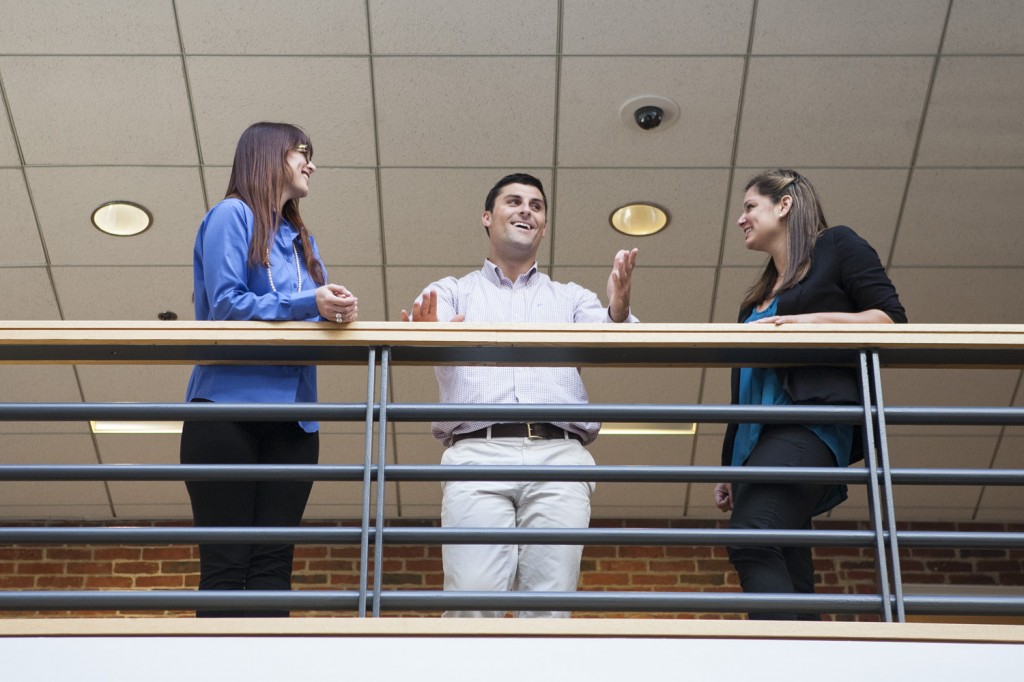Welcome to our Back to School Blog Series! This week, two of our second year Entry-to-Practice PharmD students, Alex Assumption and Lisa Wang, are sharing their personal advice and tips for new UBC Pharm Sci students.
“As the first day of pharmacy school approaches, you might be scrambling to understand why you’re applying for another student loan just to buy textbooks and a stethoscope. Don’t feel like you’re the only one going through this. I remember the night before the first day of classes was filled with anxiety and excitement. I was frantically refreshing UBC Connect and re-reading the syllabus, searching for some small tidbit of information that would give me a revelation of what this program was all about. Although I didn’t find it that night, I hope I can pass down to you, Class of 2020, some knowledge to make this transition smoother.
To start off, don’t feel as if you’re alone in this journey. The Faculty understands that transferring into a program like this is a major leap and have provided tools to for you to adjust to it. For example, the Peer Mentorship Program and Faculty Liaison Program matches first-year students up with professors and upper year students that can answer any questions you might have. There are tons of events that allow students to connect with clubs and each other. Where is all of this info? Facebook. This is the one time in this program someone will tell you that using Facebook frequently is a good thing. The UBC Pharmacy Class of 2020 is group not affiliated with the Faculty, but used by students in your year and other clubs to promote events in the faculty or pose questions which others could answer. Notifications from this group can help you keep you on top of things.
One thing that I personally had to get used was the class dynamic. In September, you’ll be greeted by over 200 new faces, which can be a lot for some. When doing my undergrad, I didn’t make many new friends during lectures and tended to keep to myself, mainly because everybody would quickly scatter as soon as the lecture ended and I probably wouldn’t have the chance to sit beside them again. That’s not the case with this program. In our first year, we as a class spent around 16 hours a week together for lectures alone. Over time, faces become more familiar and you have the opportunity to build long lasting friendships that extend farther than asking, “Hey, how do you do question 4 on the Connect quiz?” Although your class will be large, it’ll also be tight-knit in no time.
Lastly, try to stay physically healthy. This was one of my biggest struggles throughout the year and, although I don’t have all the answers, here are some tips. You can start off by eating healthy. Whenever I thought about “eating healthy”, I imagined cooking every day, something I didn’t have the time to do. So what the best thing to pack for lunch/dinner? SALAD. Think about it – it’s super easy and cheap to transfer a huge handful of leaves from a big container to a smaller container. Also, the Pharmacy Undergraduate Society offers discount for sports teams that want to register for UBC Intramurals and organizes events like Dodgeball night and Sports night.”
— Alex Assumption
“Be professional: You will hear this again and again from the faculty but it doesn’t hurt to start early.
- This may seem like a no-brainer but don’t be late for lectures or Integrated Activities. Not only is it disrespectful towards the instructors, staff and your peers but there are consequences. Nobody likes extra work on top of their usual homework load.
- Please respect your classmates by not chatting loudly outside lecture hall doors while other classes are in session. Similarly, prevent stampedes by leaving enough space for classes to exit before rushing in.
Lectures:
- One of the greatest things about lectures in the Pharmacy building is that they are Lecture Captured (audio and video recorded). However, be smart about using this tool and don’t let it give you that false sense of security that skipping a class is a good idea, even if it is to study for another class. (Some lecture videos may not be uploaded until after an assessment).
- Another aspect to be aware of is the module format of learning: 1) there is greater emphasis on certain fields of knowledge in shorter periods of time, 2) everything you learn is integrated together. I found this change the most challenging to adapt to. Perhaps you were able to “cram study” for a midterm before. Now, it will be twice as much material in a shorter learning time frame. A difficult feat no matter how much caffeine you intake. In brief, now may be a good time to re-evaluate your study habits and explore new studying methods.
Here are a few study tips:
- Quizlet is great for memorizing FDL drugs, RDM functional groups, and antibiotics
- Use note taking apps such as Evernote where you can organize folders of notes, add Word and PDF documents, images, charts, and even audio
- If the instructor states that all the testable material is on the PowerPoint slides, why not try closing your laptop and just sit and listen
- If you must take notes, annotating on the PowerPoint slides whether on paper or digitally will help you better integrate the material in your mind than just typing verbatim what the instructor states. (For anyone who’s interested, the Freakonomics podcast episode “Who Needs Handwriting?” gives a good argument for this)
- Group study. Once I had an idea of the topic, I found group practice helpful in solidifying my understanding and filling in the gaps. One example was from when we learned how to take verbal prescriptions on the phone: my classmate and I would randomly call each other throughout the week and role play through fake verbal prescriptions.
I hope these topics and tips help you with your exciting journey ahead. I’ll leave you with a couple words of wisdom from our very own David Massaro:
‘If someone tells you you’re not capable of something, nod respectfully, but don’t believe them. Stick with the people that help you grow, and reciprocate.'”
— Lisa Wang
Alex is a second year student in the Entry-to-Practice PharmD Program. Alex is committed to helping fellow students in their personal and professional improvement and is a member of the Pharmacy Undergraduate Society and the Peer Mentorship Program. When Alex isn’t studying or working with student clubs, he’s usually watching House or Prison Break on Netflix and searching for new music. What makes Alex’s day? The Earth’s rotation around the Sun!
Lisa is a second year student in the Entry-to-Practice PharmD program. Lisa is a member of the Canadian Society of Hospital Pharmacists. She can also be found designing pages for the faculty yearbook, planning top secret Skits Night scenes, or leading tours for Open House events. Outside of Pharm Sci, Lisa participates in research and plays in a string quartet.
Alex and Lisa are members of the new Faculty Student Ambassador Program. Questions for Alex and Lisa? Leave a comment here or on Facebook.

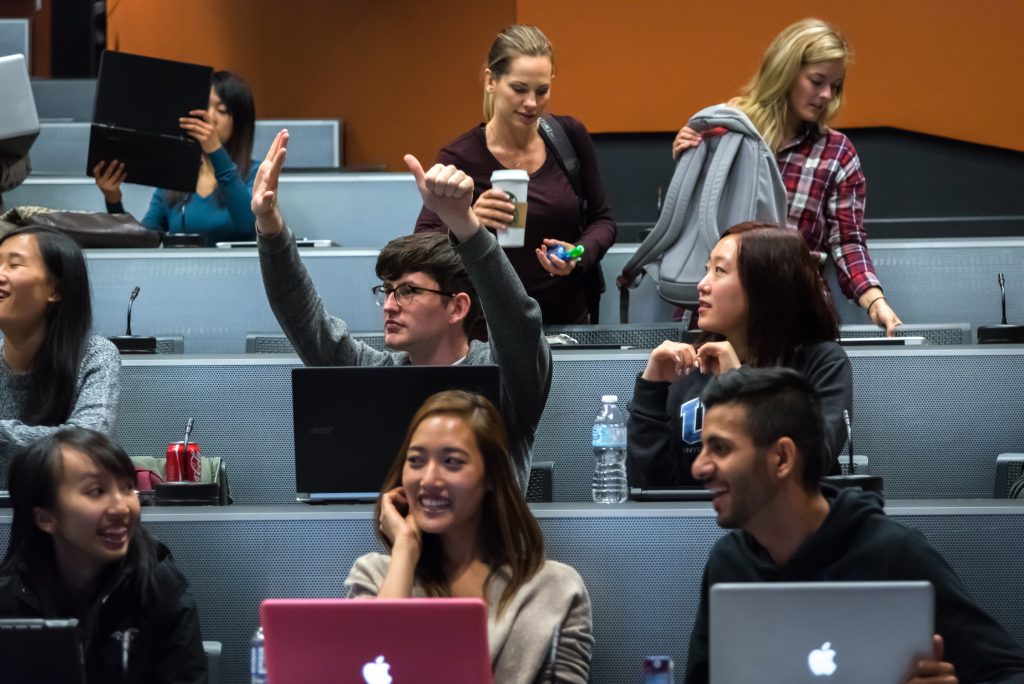
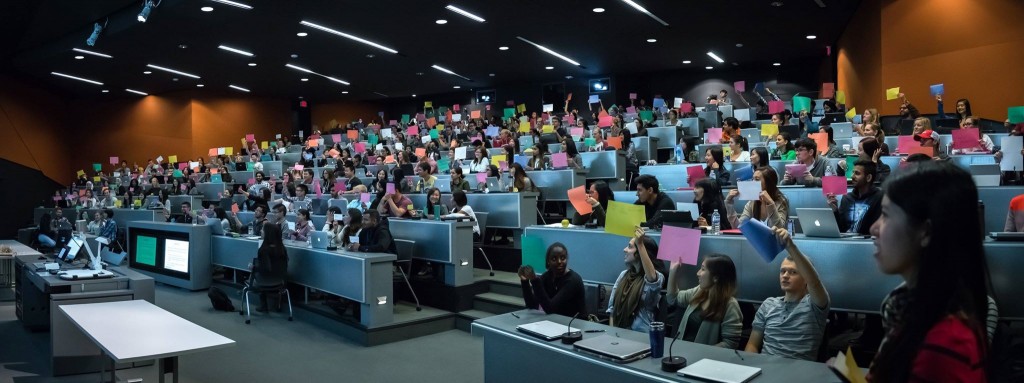
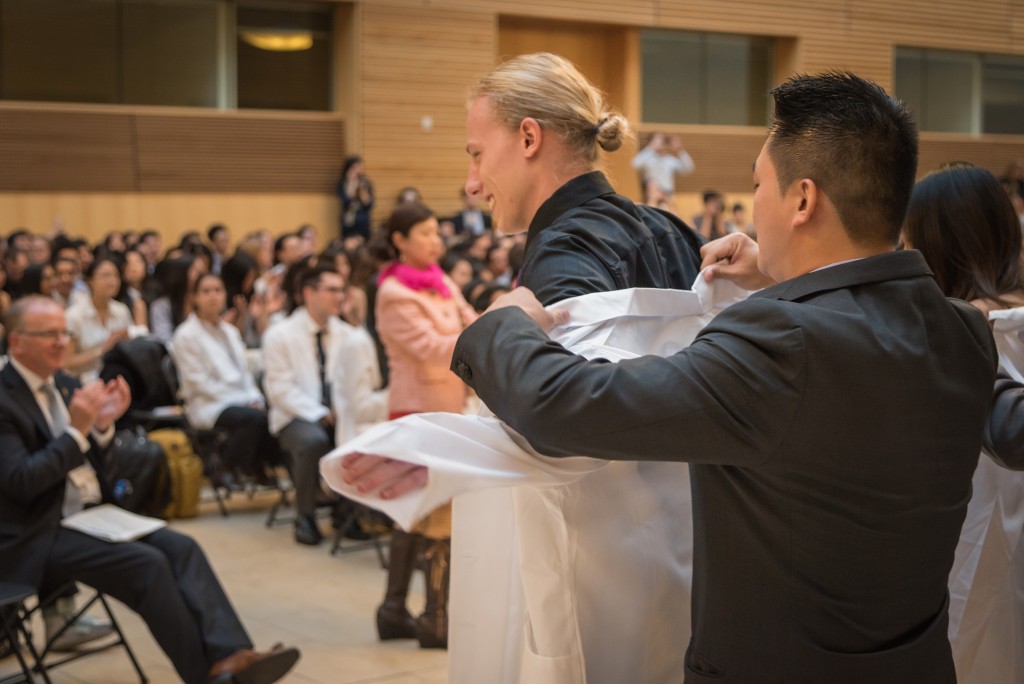
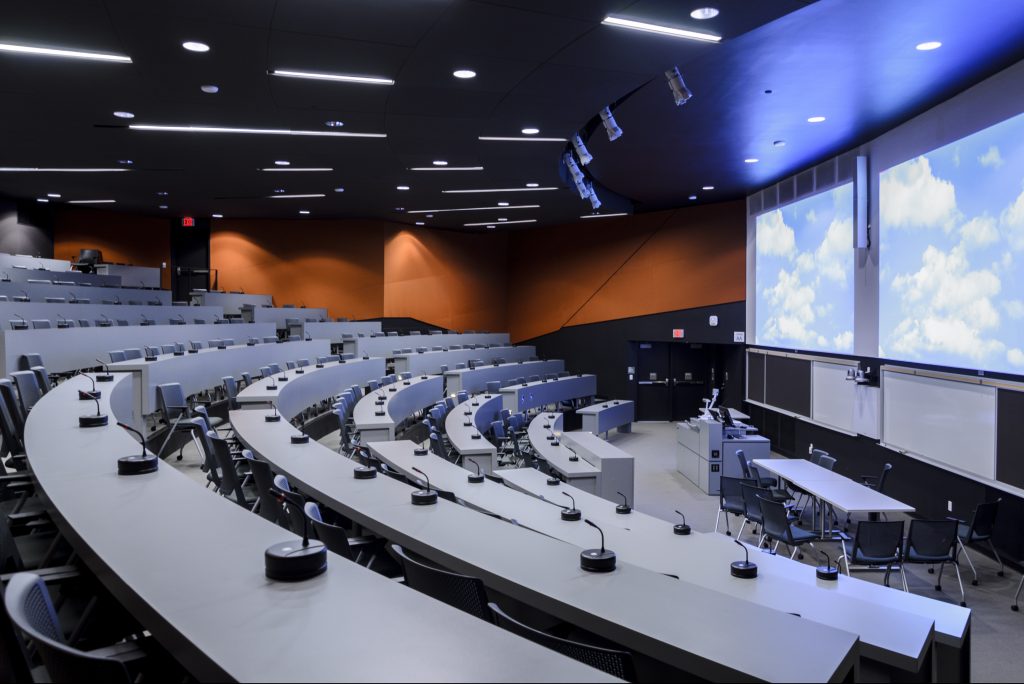
 Follow
Follow